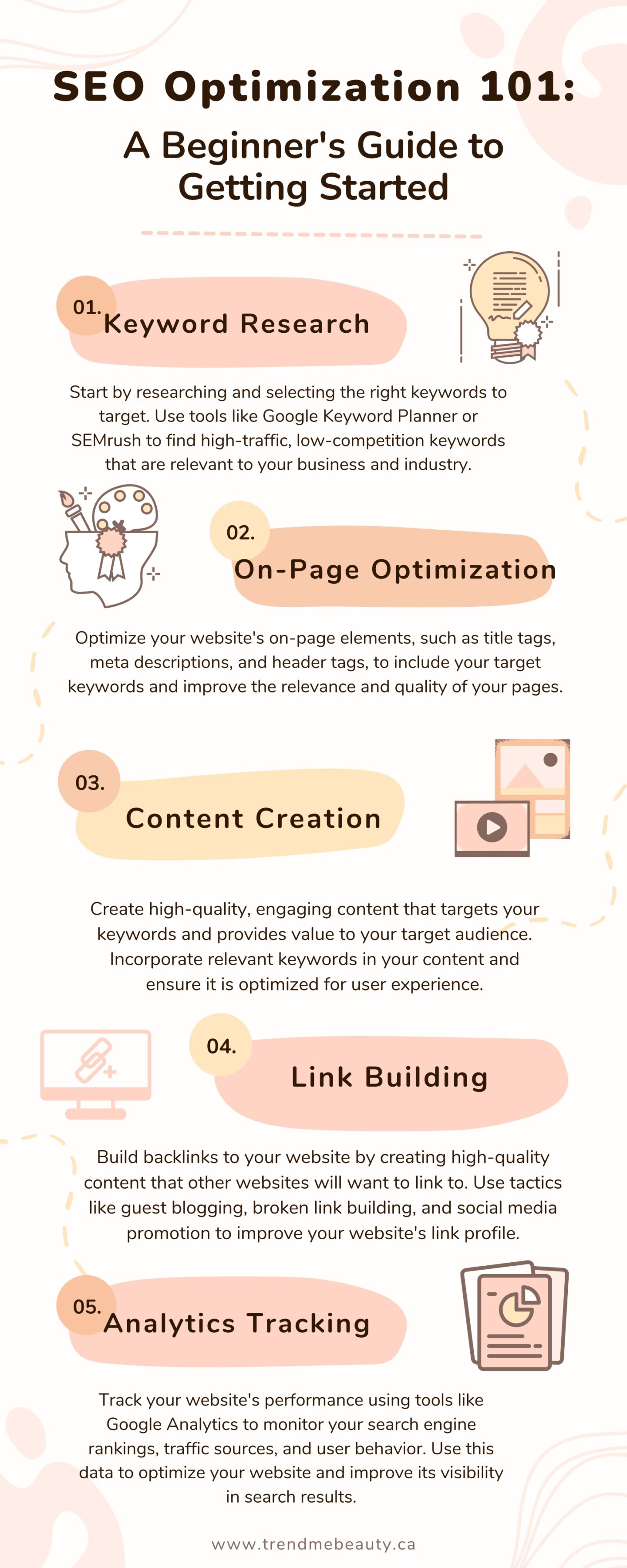
SEO, or Search Engine Optimization, is the practice of optimizing your website and content to rank higher in search engine results pages (SERPs). By doing so, you can attract more visitors to your site, increase your online visibility, and ultimately drive more leads or sales.
But, where should you start when it comes to SEO optimization as a beginner? Here are some steps you can take:
- Do Your Keyword Research
Keyword research is the process of identifying the search terms that your target audience uses to find the products or services you offer. You can use free tools like Google Keyword Planner or Ubersuggest to get started. Once you have a list of keywords, you can use them to optimize your website content.
- Optimize Your Website Structure
A well-structured website is easy to navigate and can help search engines understand the content on your site. Here are some tips to optimize your website structure:
- Use descriptive, keyword-rich URLs.
- Create a logical hierarchy of pages and sections.
- Use header tags (H1, H2, H3) to structure your content.
- Optimize Your Content
Your website content should be optimized for both search engines and users. Here are some tips to optimize your content:
- Use your target keywords in the page title, meta description, and throughout the content.
- Write high-quality content that provides value to your readers.
- Use descriptive and engaging headings and subheadings.
- Build High-Quality Backlinks
Backlinks are links from other websites that point to your site. They can help improve your search engine rankings and increase your online visibility. Here are some tips to build high-quality backlinks:
- Create high-quality content that people want to link to.
- Reach out to other website owners and ask them to link to your content.
- Participate in online communities and forums to build relationships with other website owners.
- Measure Your Results
Measuring your SEO results can help you understand how well your website is performing and where you can improve. Here are some metrics you should track:
- Organic traffic: the number of visitors who come to your site from search engines.
- Keyword rankings: the position of your website in search engine results pages for your target keywords.
- Backlinks: the number and quality of links pointing to your site.
In conclusion, SEO optimization can seem overwhelming at first, but by following these steps, you can start to improve your website’s search engine rankings and drive more traffic to your site. Remember to focus on creating high-quality content that provides value to your readers and building relationships with other website owners in your niche. Good luck!
Beginner’s Guide to SEO Optimization in 5 Steps (Infographic)
Search Engine Optimization (SEO) can be overwhelming, but it doesn’t have to be. Follow these 5 simple steps to optimize your website for search engines and achieve better visibility in search engine results pages (SERPs).






